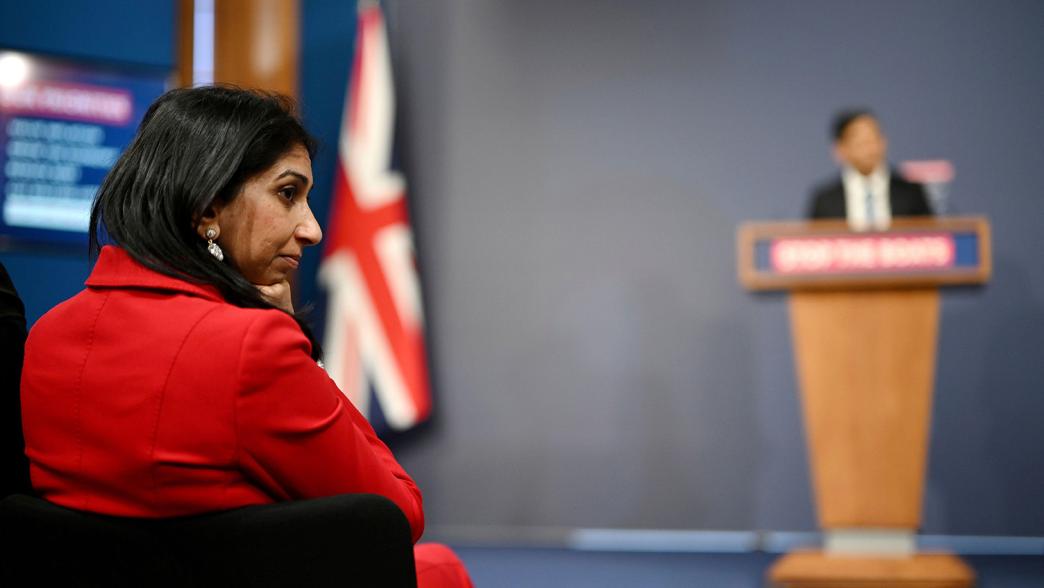Suella Braverman’s collective responsibility problem was just one reason for Sunak to sack her
The prime minister’s patience with Suella Braverman has run out.

Rishi Sunak has weighed up Suella Braverman’s value to his top team – and, says Jill Rutter, the former home secretary’s behaviour and performance finally tipped the balance into the sacking column
Suella Braverman can take pride of place as a senior secretary of state who has been sacked twice by two different prime ministers within 14 months. It is a record that few will aspire to beat.
Her first sacking was technically over a breach of the ministerial code (sharing a government document with an MP outside the government), but in reality she lost her job due to a big policy difference with then prime minister Liz Truss over whether the UK wanted more immigration to boost growth or wanted to try to rein it in.
We have yet to see Rishi Sunak’s explanation for Braverman’s second sacking, but the list of reasons to remove her was growing by the week.
Rishi Sunak had plenty of reasons to want to sack Suella Braverman
Braverman’s exit may be over another technical breach of the ministerial code: for publishing an article without taking in No.10’s edits (and probably not warning them that she was up for publishing and then being damned).
It may be over the content of that article, deliberately aimed at raising the temperature ahead of a difficult weekend, undermining a key constitutional convention about the operational independence of the police, putting the government in direct confrontation with the UK’s most senior police officer or saying idiotic things about Northern Ireland – and managing to offend everyone there in the process – when the situation is already delicate.
It may be over her freelancing the weekend before when she floated ideas for denying tents to the homeless – only for the row to overshadow a King’s Speech in which that legislation failed to make an appearance. Or it could be a slow burn reaction to her decision to fly to the US to denounce the UK’s failed multiculturalism to an audience of a couple of dozen US think tankers.
It may be a pre-emptive move – to stop a principled resignation on Wednesday if the Supreme Court finds against the Rwanda scheme or to prevent Braverman basking in a positive judgment and cementing herself as an unsackable heroine of the right of the Conservative Party.
Or it may just be that Sunak and the rest of his cabinet were just tiring of having their planned grid blown up repeatedly by a home secretary who had taken on the hand grenade mantle.
Suella Braverman has repeatedly pushed at the boundaries of collective responsibility
The truth is that the discipline around cabinet government and its cornerstone, collective responsibility – the idea that every cabinet minister must abide by and publicly defend government policy – has long been attenuated by a combination of leaks, “friends of ministers” and some outright challenges – not least by Boris Johnson as foreign secretary. It is ultimately down to the judgment of the prime minister whether any breach warrants sacking the errant minister: if it does, it may simply be a convenient pretext.
The calculation for Sunak was always whether Braverman was more of an asset – or less of a danger – as home secretary than on the backbenches. That was the decision Johnson also faced when Priti Patel was found to have bullied staff – and the reaction of the prime minister, despite the advice of his independent ethics adviser, was that the government should rally round “the Pritster” rather than offer her up as a sacrificial victim to the Home Office/civil service propriety.
And that simply serves to underline that there is no hard and fast code of ministerial behaviour. Ultimately it always comes back to the prime minister to decide. Ministers who behave admirably – and can point to policy successes – can find themselves on the discard pile in a reshuffle if their faces or politics no longer fit, or even if their job is simply needed for someone with more to offer the PM. Badly behaved, incompetent ministers can continue to serve long after their sell-by date if they are politically useful.
This morning it became clear that Braverman’s behaviour and performance had finally tipped the balance into the sacking column. She had given the prime minister no end of pretexts to rid himself of her. Sailing close to the wind repeatedly on collective responsibility was just one.
- Topic
- Ministers Policy making
- Political party
- Conservative
- Position
- Home secretary Prime minister
- Administration
- Sunak government
- Department
- Home Office Number 10
- Public figures
- Suella Braverman Rishi Sunak Boris Johnson Priti Patel
- Publisher
- Institute for Government